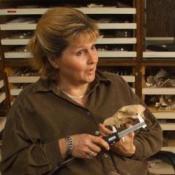Who on earth might have, say, half a million dollars to drop on an advertising campaign aimed at getting Americans to doubt the well-established science of climate change?
Well, if you answered “the oil industry,” you might be on a good track. The Cato Institute, which sponsored a series of full-page ads in the New York Times, the Washington Post, the Washington Times, the Chicago Tribune and the Los Angeles Times, is famously a paid apologist for organizations like the American Petroleum Institute (API).
We know, for example, that the API has been conspiring since the late 1990s, to sow doubt and confusion about climate science. And the signatories to this new ad – these “100 scientists” – also include a large group that has added handsomely to their livelihood in the last 10 years by taking money from think tanks and coal companies to deny climate change.
Think of people on the George Monbiot list, and think especially of someone like Patrick Michaels, a denier for hire who has long ago distinguished himself as the kind of researcher who the coal industry sponsors because of his willingness “to stand up against the alarmists and bring balance to the discussion.” (Of course, at no point does Michaels do this by actually pursuing climate researchl; rather, he appears to earn his coal money by signing Cato Institute ads).
It’s interesting that some of the worst deniers for hire (stand up Dr. S. Fred Singer), have fallen off this new list. And it’s more interesting that this list includes a couple of new names – signatories who have not appeared previously on lists of “scientists” willing to speak publicly on climate change – their area of expertise notwithstanding.
We, for example, had never heard of Susan Crockford (inset), an archeoanthropologist who specializes in the evolutionary theory of the domestic dog. And we may never hear of her again.
This is the same old stuff – a list of scientists of questionable or unrelated climate credentials, working for an oil-backed think tank to confuse people on the issue of climate change. It’s only shocking that they keep getting attention. Of course, when you have this kind of money to throw at a problem, impact is easy. Intelligent policy, apparently, is harder.
Go here to find out more details about DeSmogBlog’s monthly book give-away.
Subscribe to our newsletter
Stay up to date with DeSmog news and alerts







